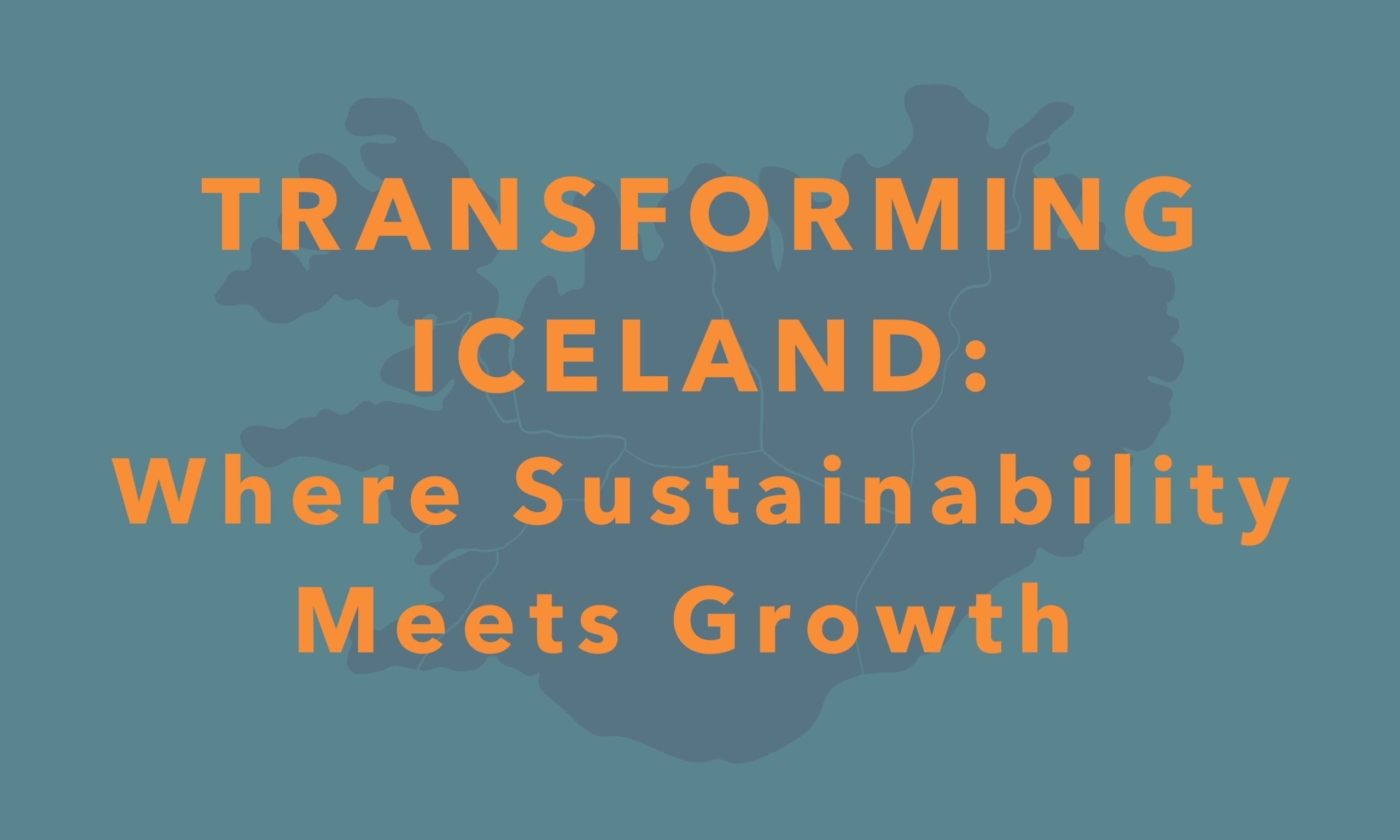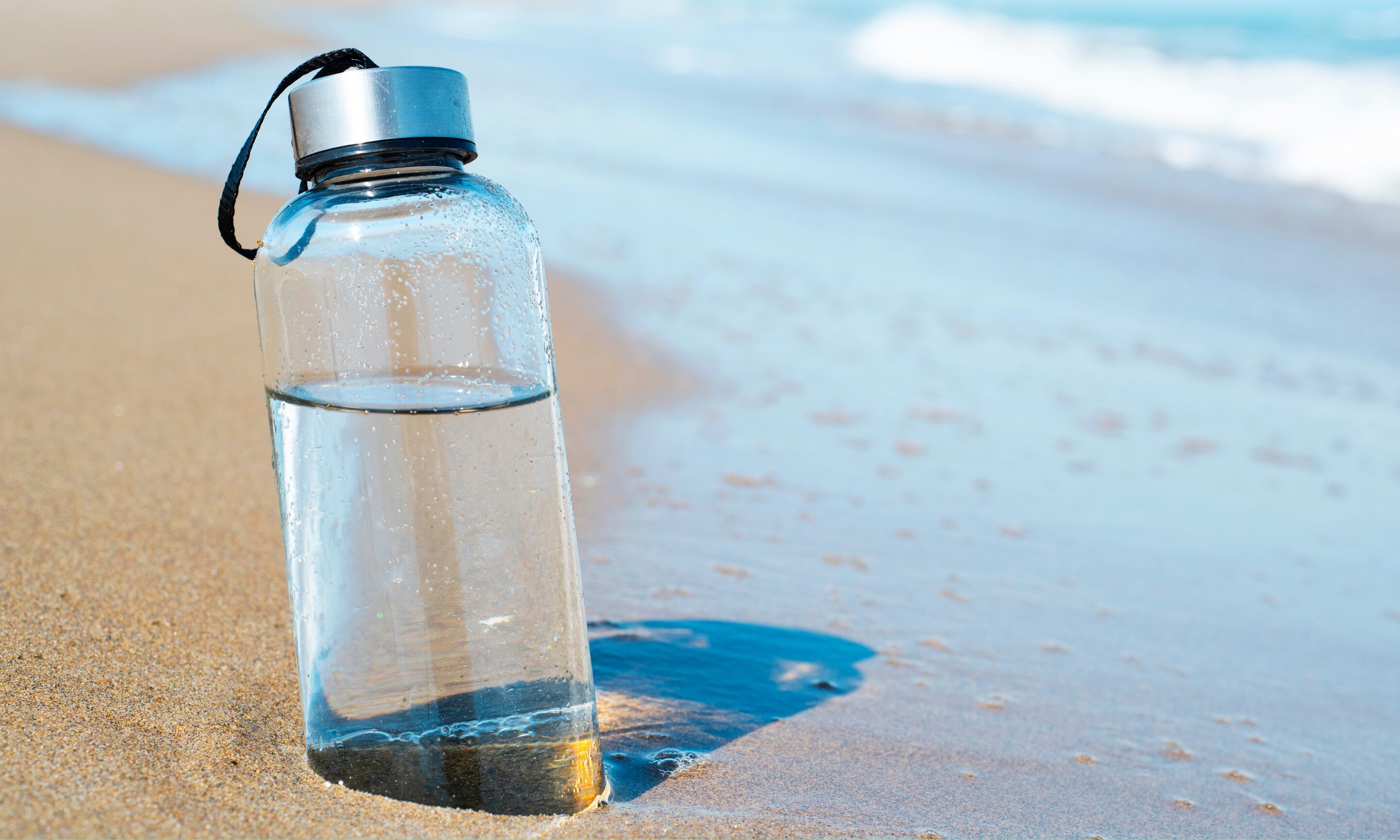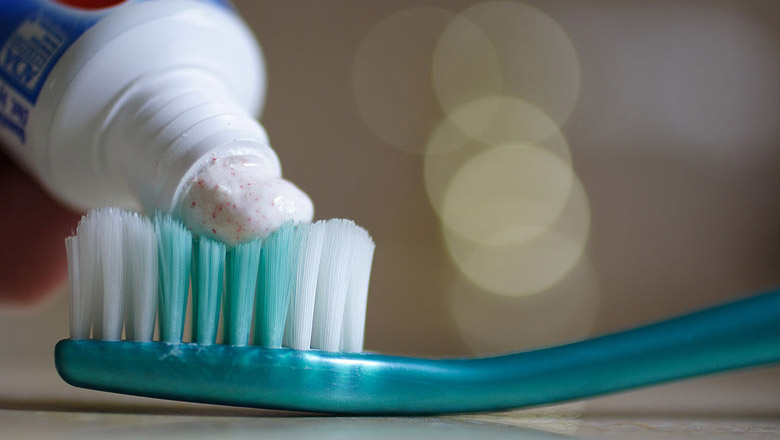
Microbead Ban: A Victory for Our Waters

With the intent to further protect our nation’s waterways, President Obama signed a bill on Dec. 28, 2015, that will completely phase out the production and distribution of plastic microbeads over the next couple of years. It will eliminate the manufacturing of products containing plastic microbeads by July 1, 2017, and the delivery/sale of such products beginning July 1, 2018.
According to The Microbead-Free Waters Act, a “plastic microbead” is defined as “any solid plastic particle that is less than five millimeters in size and is intended to be used to exfoliate or cleanse the human body or any part thereof.” Microbeads often are found in products such as toothpaste, face wash, shampoo or body scrub.
Though microbeads are small, they cause extreme contamination. According to a study performed by Environmental Science and Technology, 8 trillion microbeads per day are emitted into aquatic habitats in the United States. If you line those microbeads up side-by-side, there are enough to cover 300 tennis courts daily.
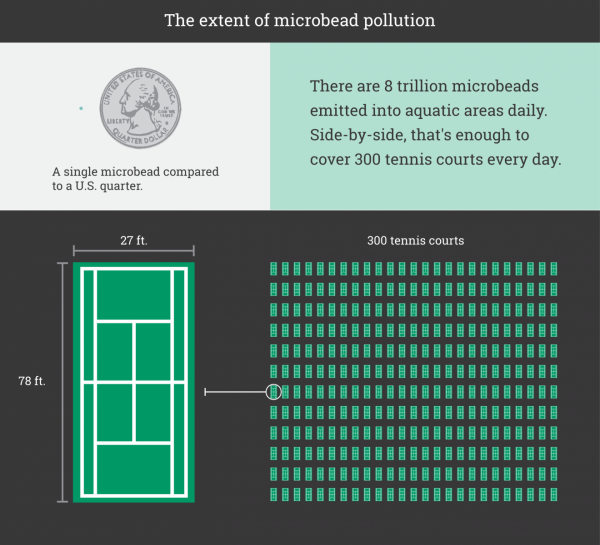
(Illustration by Anders Larsson)
Microbeads are designed to be discarded down the drain. Due to their small size, they easily trickle into wastewater plants, which are not equipped to filter such small particles, and eventually emit the microbeads into the oceans. Because of this, microbeads have largely contributed to the microplastic debris littering our oceans and lakes.
In addition to microbeads’ contribution to pollution as they enter oceans and lakes, they also threaten the aquatic food chain. As described by the Natural Resources Defense Council, when microbeads enter the water, they attract toxic substances, such as pesticides, motor oil and other industrial chemicals. Then, due to their small size, fish mistake the microbeads as food, causing the toxins to sink into their tissues. This can also cause additional side effects, such as internal abrasions and stunted growth.
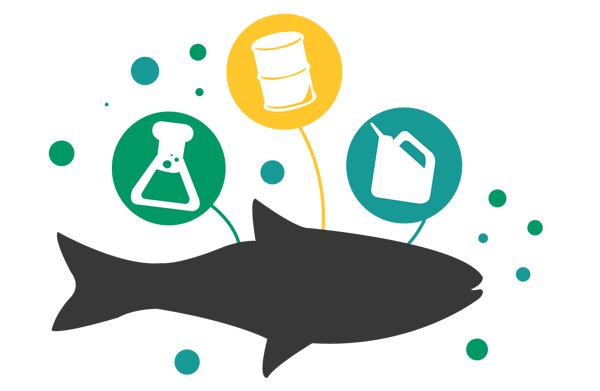
(Illustration by Sam Bradway)
So, what can be done to prevent microbeads from leaking into our oceans, lakes and rivers?
The best thing you can do is read the labels on face wash, body scrubs and toothpastes before you purchase them. The Food and Drug Administration (FDA) requires products containing microbeads to make note of them in their ingredient list, but you might not recognize them because of potentially unfamiliar, scientific terms. Look for these words to see if a product contains microbeads: polyethylene, polypropylene, polyethylene terephthalate or polymethyl methacrylate.
If you don’t want to memorize or keep those words saved in your phone, there are (several) apps for that. One example: Beat the Microbead, created by the North Sea Foundation, an organization that strives for a complete approach to the problems concerning the North Sea, and the Plastic Soup Foundation, an organization that promotes and supports measures that prevent the breakdown and proliferation of plastic waste at sea. This app allows you to easily check if a product contains microbeads by scanning its barcode with your smartphone camera. The app is constantly updated with products containing microbeads and has localized product listings.
While The Microbead-Free Waters Act is heading in the right direction to put an end to plastic pollution, its beneficial enactments do not officially begin until 2017. Until then, it’s up to you to be a conscious consumer and do your part to prevent microbeads from entering our waterways.
(Photo at top by Thegreenj)









